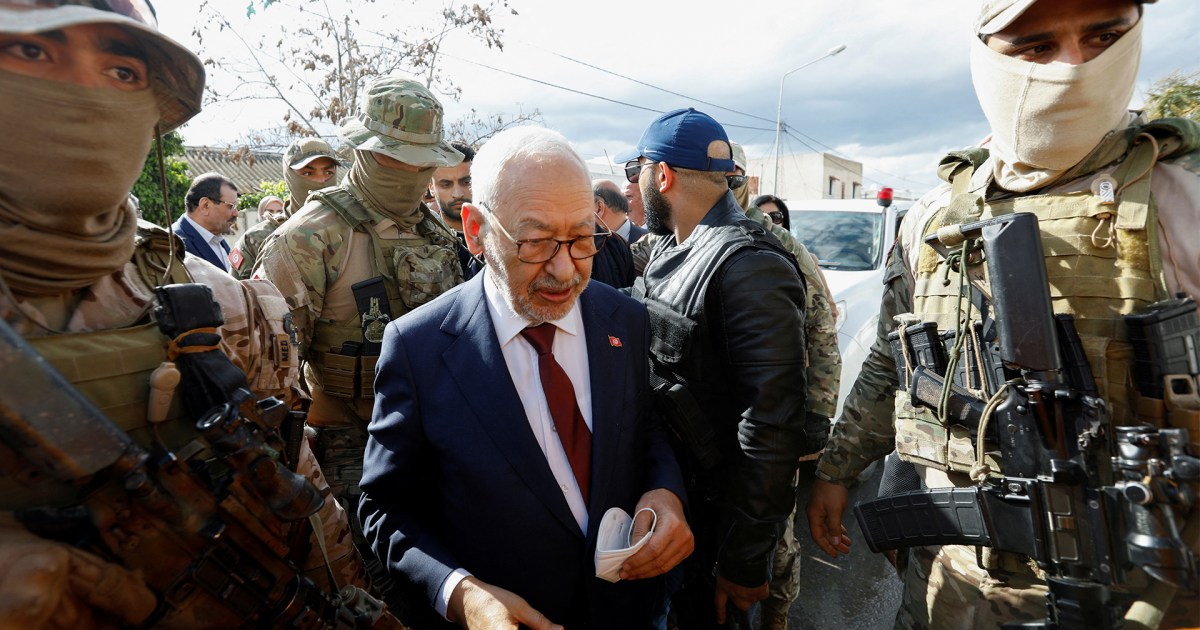Tunisian President Kais Saied said today, Monday, that the solution to the political crisis will be based on dialogue, during a series of meetings that brought him together with the heads of prominent organizations in the country, while the judiciary decided to postpone the hearing of the representatives who were accused of a coup attempt.
During a meeting with the Vice-President of the Independent High Authority for Elections, Saeed stressed the need for the authority to be fully prepared for the various upcoming benefits that the country will witness in the coming period.
Farouk Bouaskar, deputy head of the commission, said that Said stressed the importance of the role of the electoral commission and his respect for its independence as a gain of the revolution.
After another meeting with the Secretary-General of the Tunisian Labor Union, Noureddine Taboubi, Said confirmed that the solution to the political crisis in the country will not be unique to one party, but will be based on dialogue.
The Tunisian president added that he "refused to hold talks with those who tried to overthrow the state and who plundered the people's wealth."
For his part, Taboubi said that the union agreed with Said that there would be "participation" in shaping Tunisia's future.
After receiving Al-Taboubi, Saeed also met with the Industry and Trade Organization, in addition to the Dean of Lawyers, stressing the need for the dialogue to be based on the results of the online consultation.
Refusal to dissolve parliament
Meanwhile, the Ennahda movement renewed its rejection of the decision to dissolve Parliament, and considered it a flagrant violation of the constitution, which requires it to remain in permanent session and prevents its dissolution.
This came in a statement issued today, Monday, by the movement's executive office, signed by its chairman, Rashid Ghannouchi.
The parliament, whose work was suspended, had approved, in a virtual session, a law canceling the exceptional procedures that President Saeed had started on July 25, including freezing the parliament’s competencies, issuing legislation with presidential decrees, and dissolving the Supreme Judicial Council.
Hours later, Saeed announced, in a televised speech, the dissolution of parliament "to preserve the state and its institutions," considering that the parliament meeting and what was issued by it a "failed coup attempt", before they were referred for investigation from Friday until Monday.
listening delay
And since Friday, dozens of MPs (including Parliament Speaker Rashid Ghannouchi) have been referred to the investigation before the Anti-Terrorism Squad, which was also programmed today regarding other MPs, before hearing was postponed to a later date.
Maher Al-Madhyoub, the assistant speaker of parliament in charge of information and communication, said that the judiciary decided to postpone indefinitely the hearing of Ghannouchi and the deputies who were charged with an "attempted coup."
Al-Madhoub added to Anadolu Agency that the postponement was made to complete the investigations (investigations), without adding any further details.
Last Friday, Ghannouchi's office announced that the authorities had summoned the latter to appear before the Terror Crimes Investigation Unit. On the same day, Madhoub confirmed that the Anti-Terrorism Squad (the Terrorism Crimes Investigation Unit) is investigating Ghannouchi and listening to his testimony.
interference in the judiciary
In this context, the Tunisian Association of Young Judges (non-governmental) denounced the meeting of the Minister of Justice, Leila Jafal, with the representatives of the Republic (judges).
The association said in a statement that this meeting "would give the illusion that she (the Minister of Justice) has control over them as judges, and their bias towards her, which affects their impartiality before litigants and public opinion and undermines confidence in their work."
The association stressed that the public prosecution is an independent judicial body that raises and exercises public cases in the name of society, and ensures the proper application of laws, and is not a body affiliated with the executive authority or others.
Meanwhile, Ahmed Najib Chebbi, a member of the Tunisian parliament's defense committee, said that the deputies have done their duty, and what the authority has done towards them is an escalation of the political crisis in the country.
During a press conference for the Defense of Representatives referred to the judiciary, Chebbi called on all political forces to overcome the differences of the next stage, to end what he described as the current political vacuum.
Erdogan condemns
In an official Turkish response to these developments, Turkish President Recep Tayyip Erdogan said that the dissolution of the elected parliament in Tunisia constitutes a blow to the will of the Tunisian people.
In a press statement issued by the Turkish President, Erdogan hoped that these developments would not harm the ongoing transitional phase towards establishing democratic legitimacy in Tunisia.
The Turkish president stressed that his country "will continue to stand by Tunisia and its brotherly and friendly people at this critical stage."

